For many, thinking of cats brings up images of them lapping up a saucer of milk. While it’s safe for kittens to have their mother’s milk, older cats are lactose-intolerant, so giving them milk or yogurt could result in a feline not feeling well.
Yogurt, however, is easier for felines to digest due to the active cultures found within. But that still doesn’t mean that yogurt is good for cats to eat (at least not very often). If you’ve been wondering whether cats can eat yogurt, keep reading because we have all the information you need below.

The Dairy Myth
As we said, many people think giving a cat a bowl of milk is fine because the two have come to be associated with each other. When kittens are born, their bodies produce lactase because it helps them digest mama cat’s milk. But when kittens get to be about 12 weeks old, that lactase begins to decrease, along with their ability to tolerate milk. So, even though some felines might enjoy milk and other dairy products, it isn’t good for them because it could result in gastrointestinal issues.
So, what makes yogurt different? Yogurt is an exception because the process of making yogurt involves fermenting milk with cultures. This breaks the lactose in the yogurt into smaller compounds, making it a bit easier for felines to digest. So, yogurt has less risk of causing stomach upset in felines.
So, just because cats can eat yogurt, that doesn’t necessarily mean you should give it to your cat. While yogurt does offer some nutritional benefits, which we’ll discuss below, those benefits might not outweigh the potential risks.
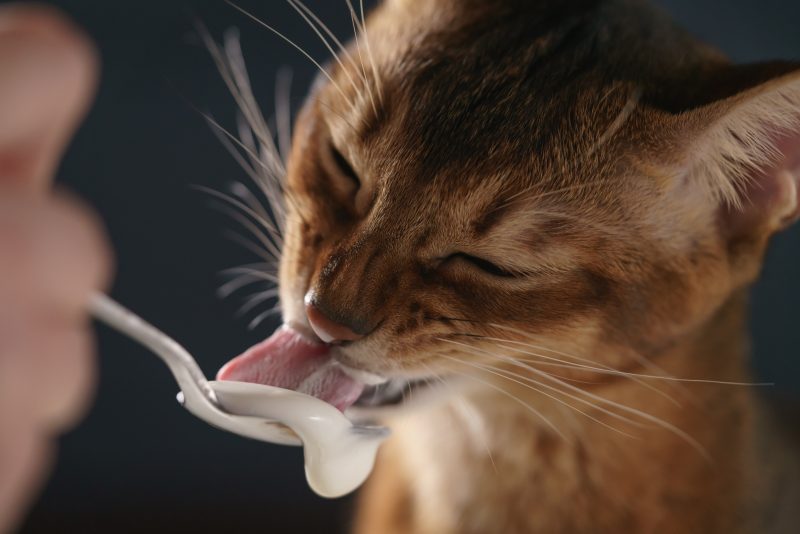
Benefits of Yogurt
When thinking of the nutritional benefits of yogurt, it’s important to remember that, given the tiny amount of yogurt safe for cats to eat (about a teaspoon), they are negligible. Your cat should be getting all the essential nutrients they need from a high-quality, balanced cat food.
Protein
Felines are obligate carnivores, meaning they need animal protein to survive. All that meat means a cat needs a diet that’s high in protein (roughly 2 grams of protein is needed for each pound a cat weighs), which keeps them lean and energetic.
And yogurt can offer your cat some of that protein, just not a ton. While 6 ounces of plain Greek yogurt can contain 9g to 15g grams of protein, your cat wouldn’t be eating that much yogurt, so it would receive far less protein than that. Still, a nice little boost of protein doesn’t hurt every now and again.
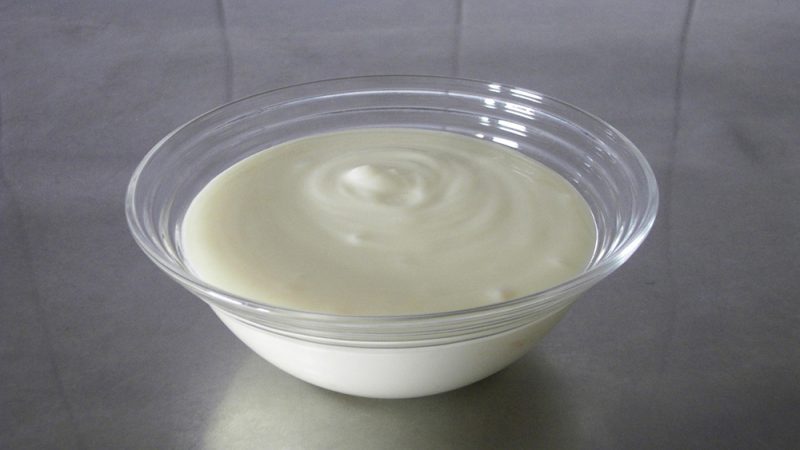
Vitamins & Minerals
Then there are the vitamins and minerals yogurt can provide for your cat. For example, yogurt is rich in calcium that aids in keeping bones and teeth healthy and strong. Yogurt also contains magnesium and vitamins B12 and D.
Probiotics
Yogurt also offers up healthy bacteria in the form of probiotics, which can aid your pet with digestion. However, though probiotics can help reduce problems such as diarrhea and gas, they aren’t something your cat necessarily needs unless they’re having issues with the gastrointestinal tract. And if they are having gastrointestinal upset, yogurt isn’t the best way to add probiotics to their diet anyway; going to the vet to ask about a probiotic supplement formulated especially for cats is a much better option!
Need veterinary advice but can't get to the clinic? Catster recommends PangoVet, our online veterinary service. Talk to a vet online and get the answers and advice you need for your cat without having to leave your living room — all at an affordable price!


Risks of Yogurt
The most significant risk of cats eating yogurt is, of course, that it could upset the cat’s stomach. Though the lactose in yogurt is easier to break down, it’s still there, and some felines will be more sensitive to lactose than others. So, an upset stomach is always possible.
There’s also the risk of toxicity. When giving a cat yogurt, you only want to give it plain, unsweetened yogurt. Flavored yogurts often have artificial flavorings, which can be extremely dangerous for felines—particularly xylitol, often found in sugar-free foods and an additive that can result in a life-threatening situation for your pet.
Artificial flavorings aren’t the only things found in yogurt that could be dangerous, though. Some yogurts may contain other toxic or harmful ingredients, like grapes, chocolate, coconut, and citrus.
Finally, if your pet eats too much yogurt, it’s consuming more calories than it should in a day. Added up over time, those extra calories can result in weight gain, leading to weight-related health issues.
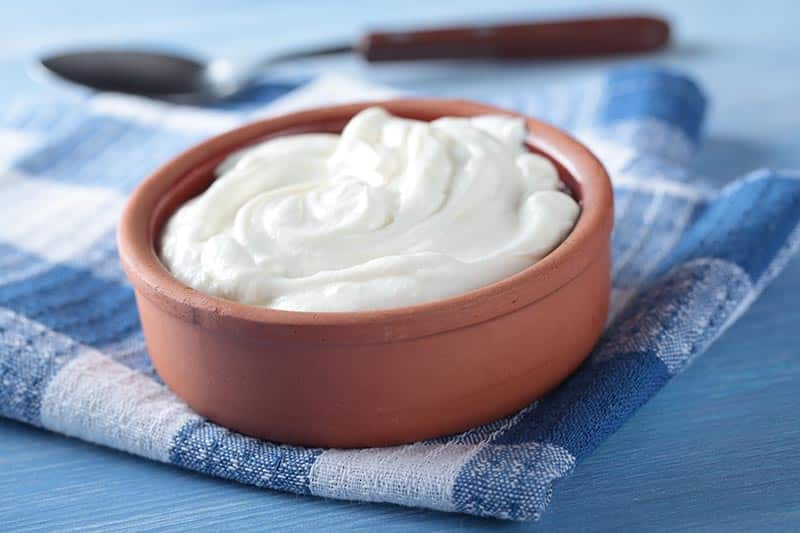

Final Thoughts
Though yogurt isn’t the worst thing you could feed your cat as a treat, it also isn’t the best. The cultures used in making yogurt mean that the lactose in this food is broken down more, so it should reduce the risk of lactose-intolerant cats becoming ill. However, it still doesn’t provide many nutritional benefits for your pet and can contain toxic ingredients.
If you want to give your feline yogurt as a treat occasionally, don’t give it more than a teaspoon of plain, unsweetened yogurt. But keep in mind that your cat’s calories really should be coming from a meat-heavy, high-protein diet!
See Also:
- Can Cats Drink Milk? Vet Approved Nutrition Facts & FAQ
- Can Cats Eat Frosty Paws? Vet-Reviewed Nutritional Facts & FAQ
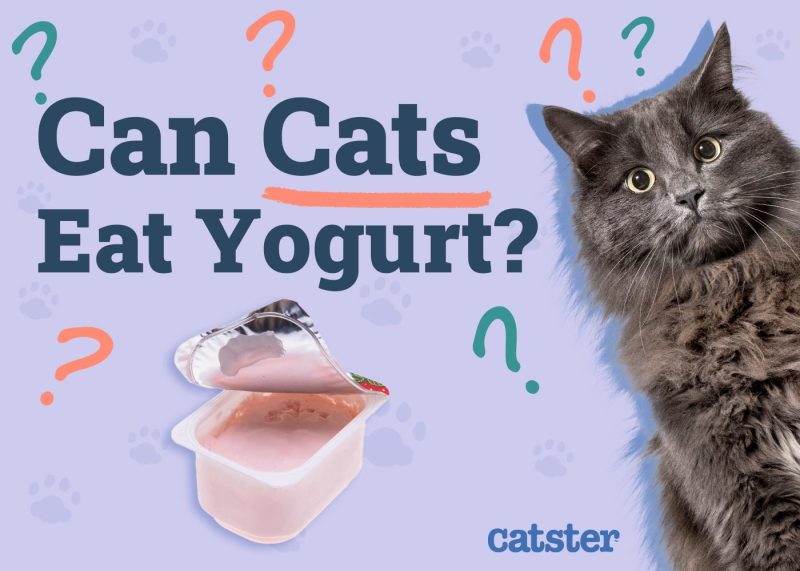

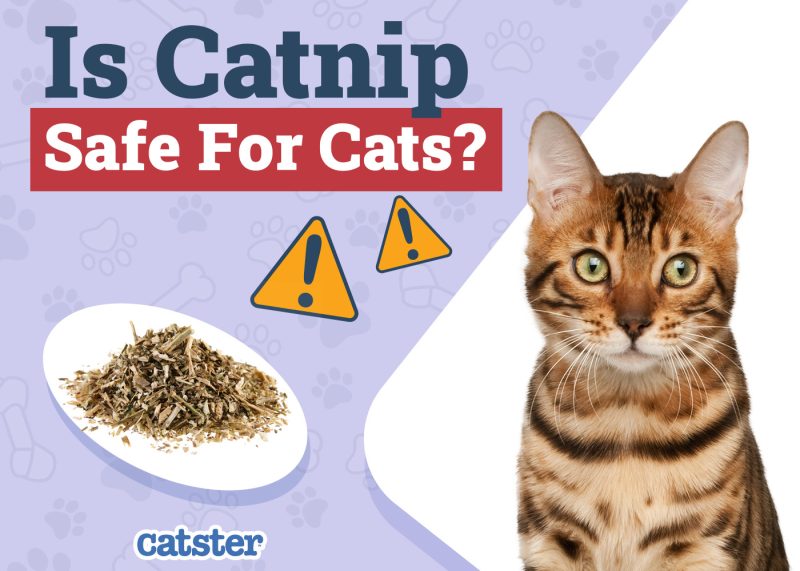

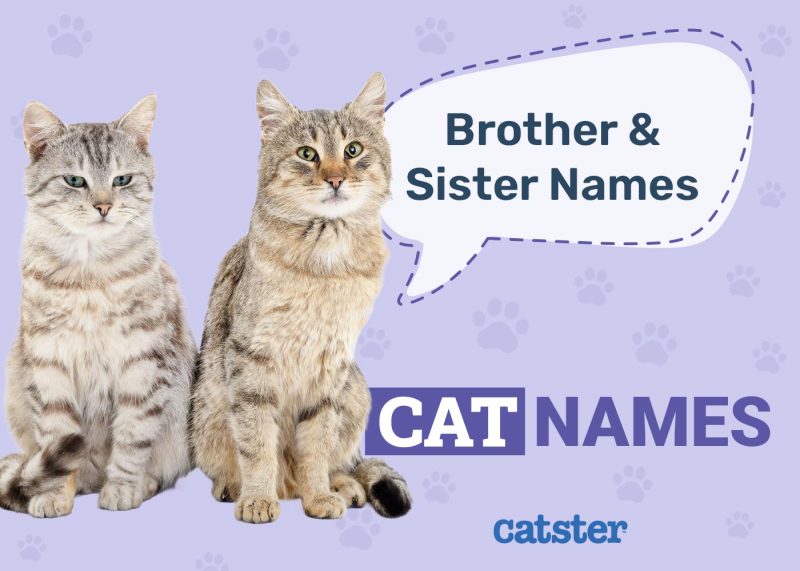

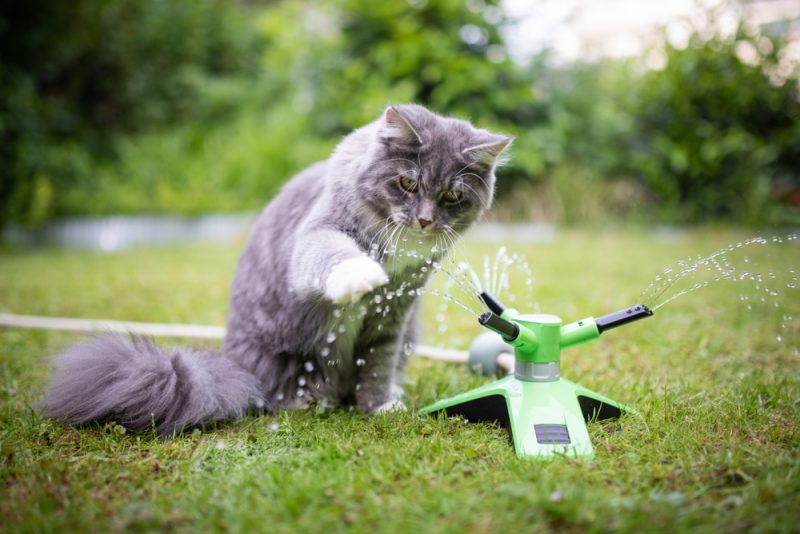
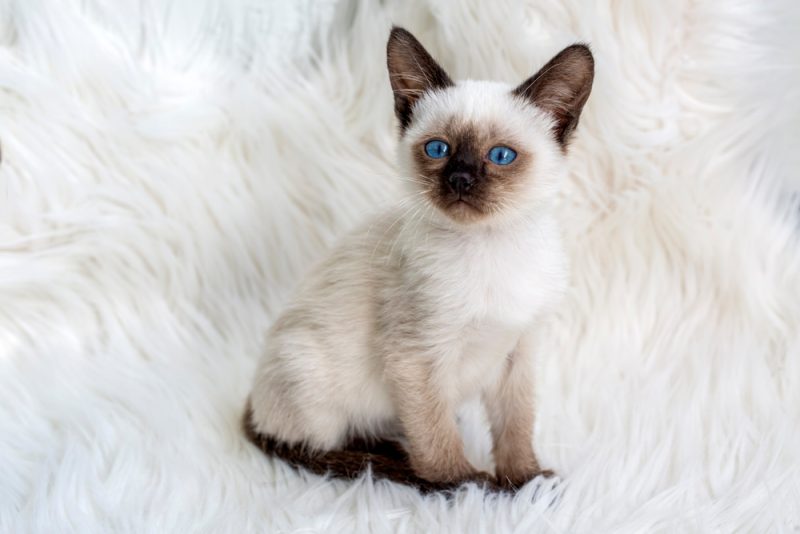
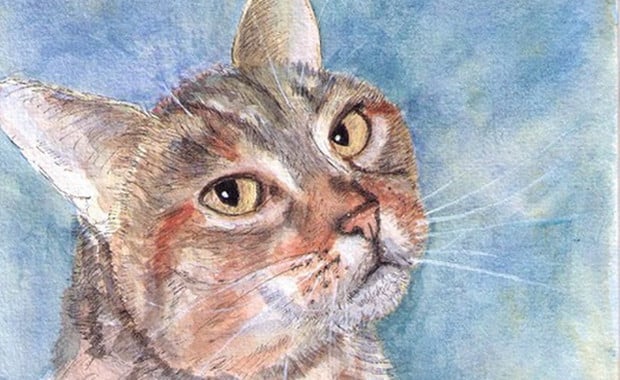
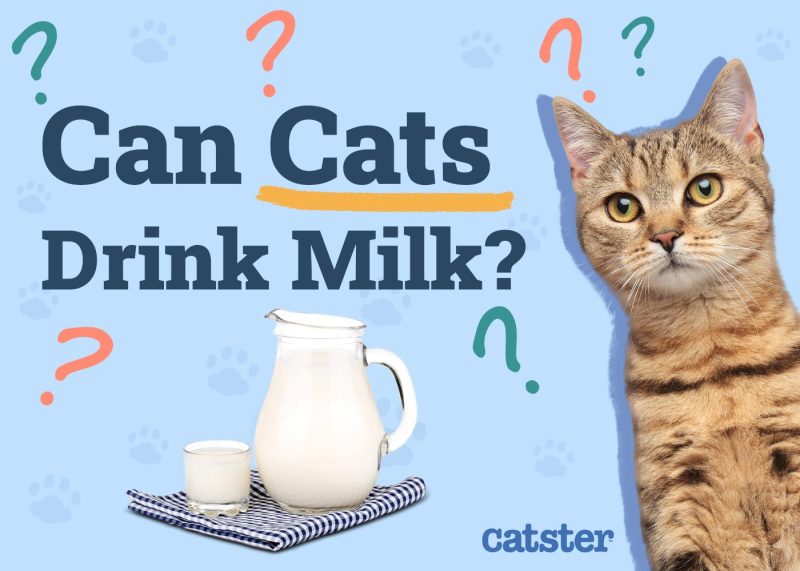
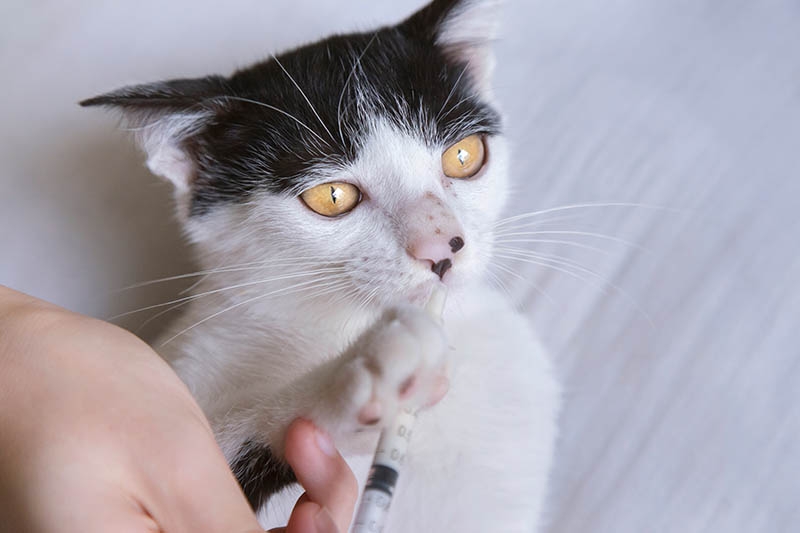
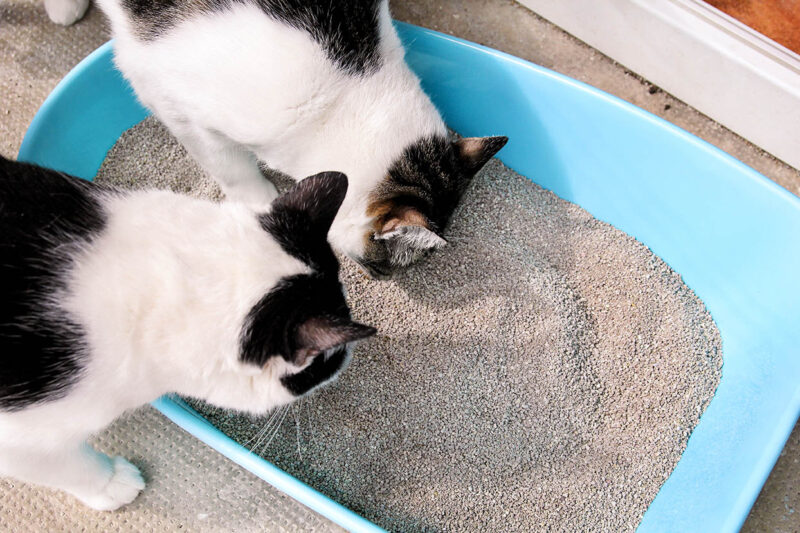
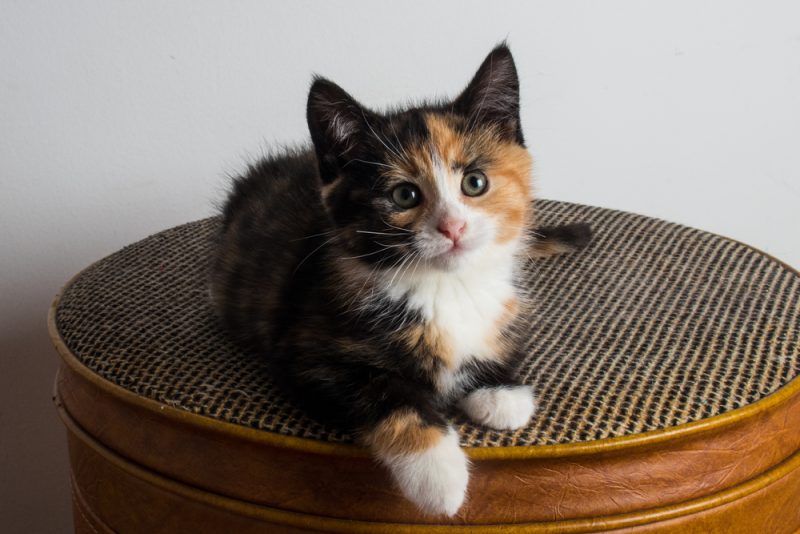
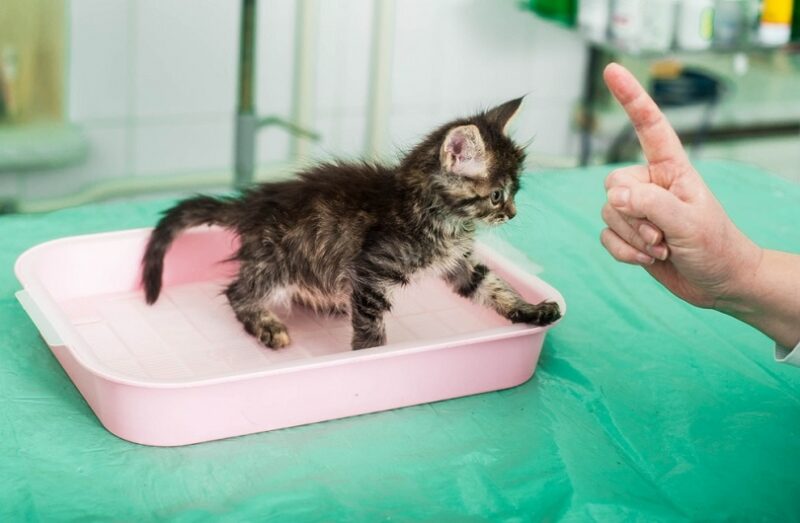
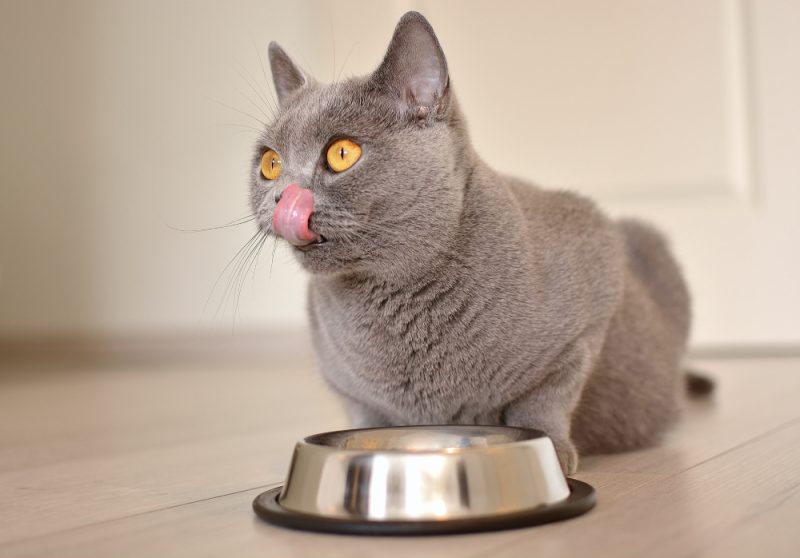

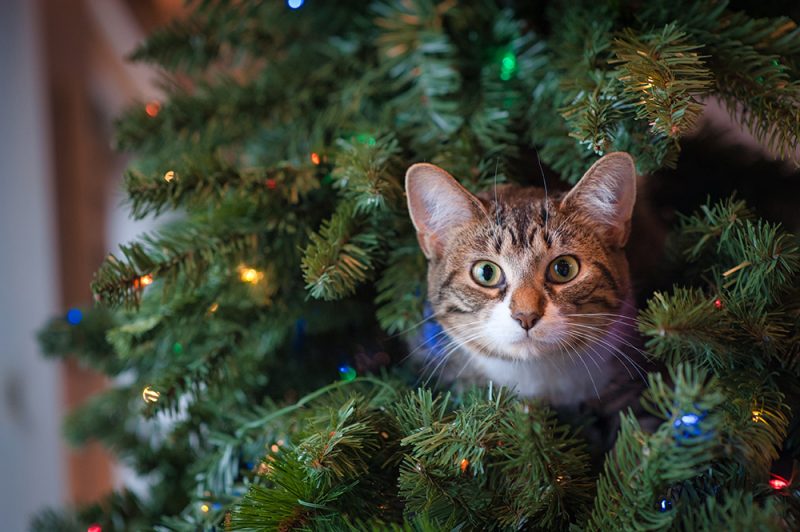
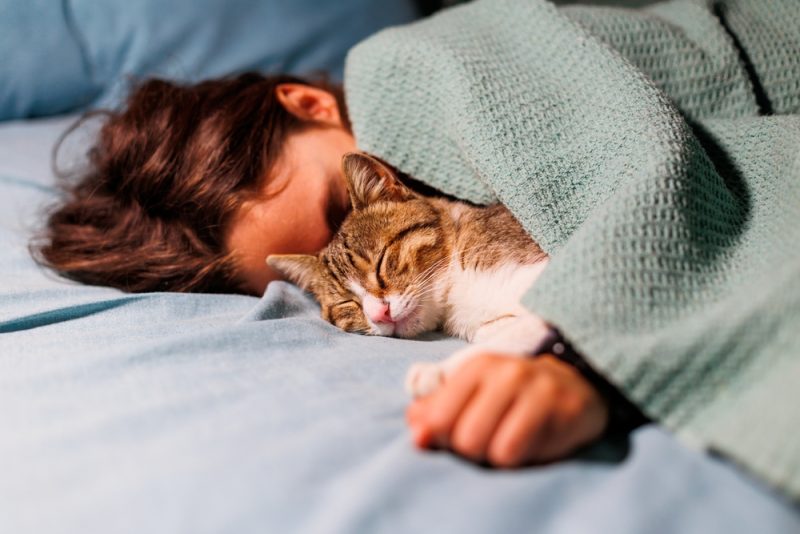

4 Responses
have two 1yr old cats – they have been transferred from science diet kitten dry to tiki canned and dry. seem to be doing well.
so, they like to have some bacon and eggs abt once a week – bacon is tiny pieces, egg is white. are these 2 treats ok for them? they will also eat tiny pieces of steak, chicken, ham, and organic lunch meat (ham/turkey) all pieces are very small.
are they ok eating these table foods occasionally? thanks
Hi Sue,
Thank you for reaching out and for being so attentive to your cats' diet! It's great to hear that they’re doing well on their new food. While it’s understandable that you want to share a treat with them now and then, it's important to be cautious with human foods, as they can sometimes contribute to obesity or other health issues in pets. It’s vital to ensure that their primary diet remains balanced and meets all their nutritional needs.
For more detailed guidance, we recommend checking out our blog about approved human foods for cats, which might give you more insight into what's safe for them to eat:
– https://www.catster.com/nutrition/human-foods-safe-for-cats/
– https://www.catster.com/nutrition/can-cats-eat-eggs/
– https://www.catster.com/nutrition/can-cats-eat-bacon/
Please copy and paste the link on your preferred browser.
If you have any concerns about their diet or overall health, it might be helpful to schedule a consultation with one of our veterinarians at Pangovet.com Proper nutrition is essential for their long-term well-being.
Thanks again for your question, and I wish you and your cats all the best!
My cat loves to lick the lid and the container when we are done eating yogurt. He loved 'fruit on the bottom', since we can no longer find it , he will only eat blended blueberry or strawberry. It's his favorite thing every morning to come and bug us until we are done eating a yogurt.
Hi Jewlz,
Thank you for sharing such a sweet story about your cat's love for yogurt! It’s always fun to see how our pets develop their own little routines.
However, please be mindful that some yogurts, especially those with fruit, can contain a lot of sugars and other ingredients that might not be the best for your cat’s health. It’s important to ensure your cat's diet remains balanced. If you notice any signs of stomach upset, it would be a good idea to consult a veterinarian.
You can also consult the following post for more information regarding lactose intolerance in cats:]
https://www.catster.com/cat-health-care/are-cats-lactose-intolerant/
Please copy and paste the link in your preferred browser.
Thanks again for your comment!